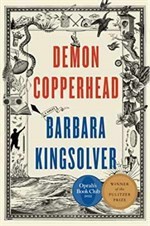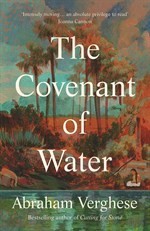Library Advocacy
Why is advocacy important? It ensures that the Boise Public Library continues to have funding and governance to serve as a vital community resource for everyone in Boise. Regular and consistent engagement with elected officials means there's a greater chance of being top of mind when important decisions are being made.
Library Advocacy ToolkitWhat is Advocacy?
Advocacy:
- Informs people about library services and their value to the community
- Demonstrates how public library services improve the lives of people in our community
- Speaks to the vision, mission, and values of the Boise Public Library
- Ensures libraries have resources to continue to offer materials, programs, and services
- Secures a place at the table for library leaders where important funding and policy decisions are made

In the Toolkit
|
|
By the Numbers (FY 23)
Be an Advocate
When library issues arise in public policy debates, Library advocates should be ready to reach out to their public officials and share your expectation that they will help protect our libraries and our rights!
- Get to know your state and local elected officials. Do not wait until you need something to connect. Idaho officials are very accessible and want to meet with their local constituents to better understand their needs and concerns.
- Do your homework. Reach out to the Boise Public Library or the Idaho Library Association for background on the specific issue and how best to frame your message.
- Know your audience. Research positions of elected officials in advance. Understand what they care about and consider how your request aligns.
- Contact elected officials personally if possible. A meeting is better than a phone call, a phone call is better than an email, and an email is better than not connecting.
- Always start with a thank you. Find something the elected official has recently supported which has a positive community impact and thank them for it.
- Keep it brief. Share the most important facts and the few best arguments.
- Make it personal. Explain how the issue impacts you and your family/friends.
- Make a clear request. Ask them to specifically SUPPORT or OPPOSE legislation, for help to change the legislation, or invite them to attend an event to learn more about a particular issue.
- Be polite, but direct, and try to get a commitment to support the Library and your position.
- Follow up. Once the issue is resolved, make sure to thank those who supported the Library and commitment to reconnecting with those who did not.
JanuaryMark important state legislative dates on your calendar. The first day of the session is January 8, 2024; Governor Little will also deliver the State of the State Address. Watch for bills being introduced and notice any library specific initiatives proposed. Bills will get hearings as early as week two of the session so expect that discussions will move quickly. Plan to participate in Fight for the First gathering at the Capitol on Saturday, January 13, from 2-5 pm. Support your library and let your state legislators know that you oppose censorship in libraries. Welcome new members of the Boise City Council on January 9th. |
FebruaryThis is an important time to continue to check in on bills that are being introduced in committee. Make plans to submit testimony or testify in person. Watch for bills that have made it out of committee as well. |
MarchAs we get near the end of session, keep a close eye on the legislature as bills may be introduced and passed out of committee very quickly and with little notice. The target date for the legislature to adjourn (Sine Die) is March 22 unless the calendar is adjusted during the session |
AprilCelebrate National Library Week April 7-13! Share the library’s story with friends and family during this annual celebration and encourage others to do the same. On April 11, Take Action for Libraries Day, contact your congressional delegates and urge them to protect the freedom to read.
|
MayThank your elected officials for their support during the legislative session. Encourage them to visit the library during the summer to see it in action. 2024 is an election year for state legislators and primaries are held in May. Be sure you are registered to vote and make a plan to vote in the primary election. Contact your candidates and ask them about their support of libraries or stance on censorship. Let them know that libraries are important to you. |
JuneSummer is the busiest time of year at the library! Register for the Summer Reading Program and share library social media posts to help spread the word about events happening all summer long. |
JulyConnect with City Council members about the next fiscal year’s budget and how they can support the library. Send them a note to thank them for their support. Ask them to reach out to their library director if they’d like a tour or to speak in person about the library.
|
AugustGet ready for back-to-school season and turn in your summer reading program trackers! |
SeptemberIt’s National Library Card Sign Up Month! Tag local and state elected officials in social media posts encouraging people to sign up for a library card. Share your favorite library memories and stories on your own social media accounts. |
October2024 is an election year for state legislators. Make a plan to vote in the general election. Contact your candidates and ask them about their support of libraries or stance on censorship. Let them know that libraries are important to you. |
NovemberGet out and vote! Cast your ballot for candidates who support libraries and oppose censorship |
DecemberThe end of the calendar year means the next legislative session is coming soon. Reach out to elected offi cials to invite them to events, thank them for their support, and encourage them to connect with their library. |
- Parents have the right and responsibility to guide their children's reading but individuals should not be making decisions for other readers or other parents' children.
- The First Amendment protects access to information and the right to read.
- The legislature cannot prohibit or restrict access to information just because they don't like the message conveyed.
- The legislature cannot dictate what people can or cannot read.
- Libraries include materials in their collections that meet the needs of ALL people in their community. What is right for some may not be appropriate for others. Finding Books and Resources for You and Your Family
- Books are tools for understanding complex issues. Books on controversial or challenging topics create opportunities for growth and learning and help youth critically navigate their world.
- Librarians are professionals who take their job and responsibilities seriously. They are trained to not impose their own thoughts and opinions on which ideas are right, but to make knowledge and ideas available so that everyone has the freedom to choose what to read and the ability to form their own opinions.
Advocacy Hot Topics
There are always a number of topics with which we could use your support.
Efforts to censor material in libraries are on the rise in Idaho and around the country. These efforts seek to limit the viewpoints available to minors by suppressing and erasing already marginalized voices. They are not supported by the majority of voters.
The Boise Public Library does not carry porn and independent studies show that children do not access porn in libraries. The proposed censorship laws are not intended to address an actual problem that exists in our libraries but are intended to create a chilling effect that will cause libraries to remove materials that some find objectionable in order to avoid the thread of costly litigation.
Most of the materials targeted for censorship are authored by or contain characters that are LGBTQ+ or people of color. Proponents of censorship know that they cannot succeed in having these materials removed on this basis, so they attempt to label the materials as "pornography," obscenity," or "material harmful to minors."
Many of these proposed laws are designed to suppress and erase already marginalized voices, particularly LGBTQ+ and people of color.
We are happy to provide resources to help find books and resources for you and your family.
We believe that everyone should have the right to access eBooks and eAudiobooks easily and affordably. eBooks and eAudiobooks are more than just convenience; they bridge the gap between traditional and digital learning, making reading more broadly accessible. They also provide accessibility for people who need larger print or need to listen rather than read, since it is getting harder to purchase physical books in large print and on CD. While we are actively seeking ways to include more digital content for our users there are many barriers that we need to overcome.
How Much Does the Library Really Pay for Digital Materials?
Typically, the average cost of a digital format is at least twice the cost for a physical copy. Recently our average price for a Book on CD was $35 and an eAudiobook was $62 while the average price for a print book was $15.13 and an eBook was $28.50.
A few more specific examples of new titles by popular authors -
 |
Demon Copperhead by Barbara Kingsolver
|
 |
The Covenant of Water by Abraham Verghese
|
How You Can Help
By advocating for better access, you are championing the principles of equality, affordability, and community enrichment. Here are some ways you can educate yourself and advocate for your local library:
- If you want to learn more about what libraries are doing to provide digital materials, visit Readers First.
- You can also reach out to the major publishers and tell them your thoughts on how libraries can best provide access for all users.



